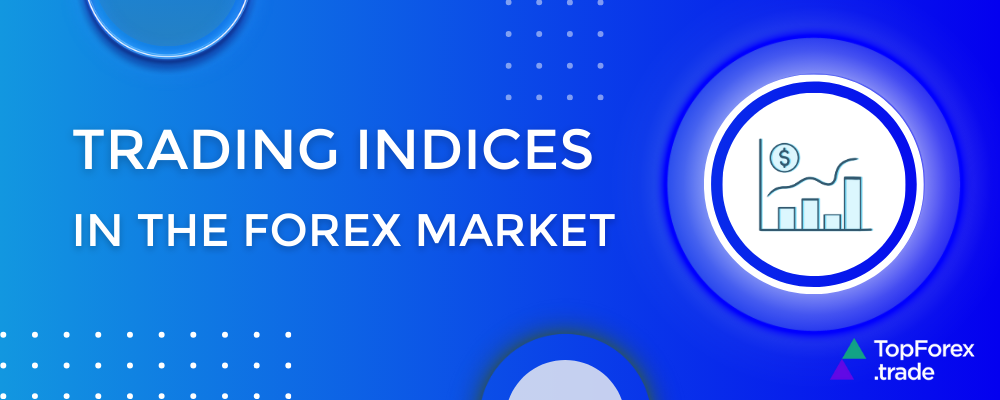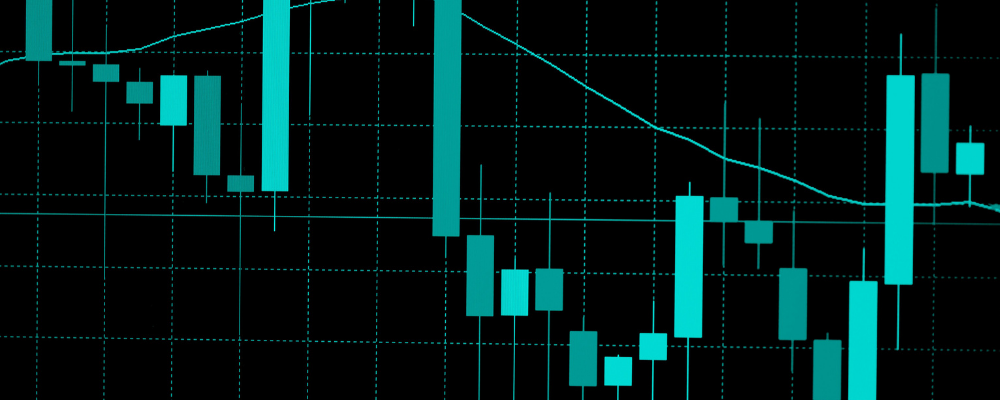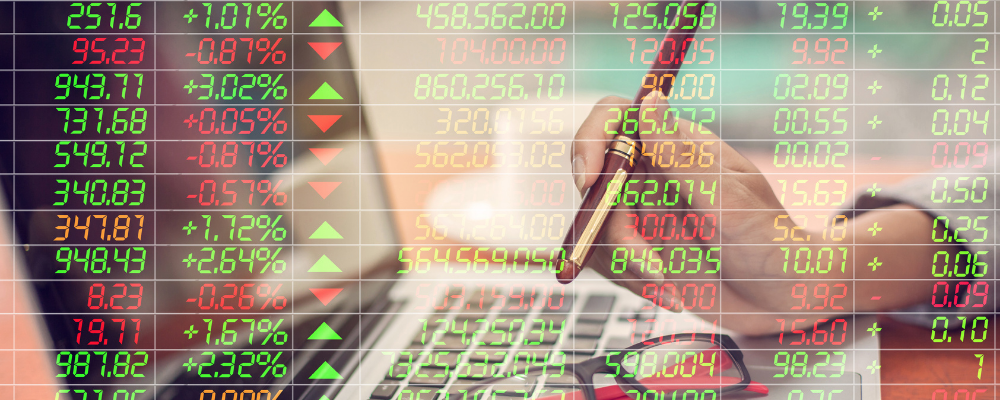What are indices? A comprehensive guide

In trading, “indices” means groups of stocks that show how well the stock market is doing. They help us understand if stocks in general are going up or down. These groups are made up of specific stocks from certain markets or industries. The stocks in these groups are chosen based on their size and importance.
Each stock in an index has a certain importance, and this is considered when figuring out how the index is doing. If an index goes up, it usually means the stocks in that group are doing well. If it goes down, it suggests the stocks are not doing as well.
Investors and traders use these indices to check how their investments are doing compared to the overall market. If their investments are similar to a specific index, it shows how well they are performing in the overall market.
Indices also help us see big trends in the market. For example, if a popular index is going up, it might mean that the overall market is strong. If it’s going down, it might mean the market is not doing so well.
There are different indices for different markets, and some popular ones include the S&P 500, Dow Jones, Nasdaq, FTSE 100, and DAX. People use these indices to understand what’s happening in the stock market and make smart decisions about buying and selling stocks.
What indices to trade

In the world of finance and trading, there are various types of indices designed to measure different aspects of the markets. Here are some common types:
1. Stock market indices:
- Broad market indices: These represent the overall performance of a stock market. Examples include the S&P 500 in the United States and the FTSE 100 in the United Kingdom.
- Sector indices: These focus on specific industries or sectors, such as technology, healthcare, or finance.
2. Global indices:
- World indices: These measure the performance of global markets. Examples include the MSCI World Index.
- Regional indices: They focus on specific regions, like the Euro Stoxx 50 in Europe or the Nikkei 225 in Japan.
3. Style indices:
- Value and growth indices: These categorize stocks based on their fundamental characteristics. Value stocks are typically considered undervalued, while growth stocks are expected to have higher future earnings.
4. Market capitalization indices:
- Large-Cap, Mid-Cap, and Small-Cap indices: These classify stocks based on their market capitalization. Examples include the Russell 1000 (large-cap) and the Russell 2000 (small-cap).
5. Strategy indices:
- Dividend indices: These track stocks that pay high dividends.
- Volatility indices: Such as the VIX, measure market volatility.
- Quality indices: These focus on companies with strong balance sheets and stable earnings.
6. Commodity indices:
- Commodity price indices: Measure the performance of a basket of commodities, like the Bloomberg Commodity Index.
- Energy indices: Track the performance of energy-related commodities.
7. Currency indices:
- Trade-weighted indices: Reflect a currency’s value against a basket of other currencies.
- Major currency indices: Measure the performance of a specific major currency against a basket of other major currencies.
8. Bond indices:
- Government bond indices: Track the performance of government bonds.
- Corporate bond indices: Measure the performance of corporate bonds.
9. Custom or thematic indices:
- Environmental, Social, and Governance (ESG) indices: Include companies with strong environmental, social, and governance practices.
- Smart beta indices: Use alternative weighting methodologies based on factors like volatility or dividends.
These are just a few examples, and many more specialized indices are catering to specific investment strategies and preferences. Investors often use these indices as benchmarks for their portfolios or to gain exposure to specific market segments.
What moves an index price?

Several factors influence the movement of an index’s price. Understanding these factors is crucial for anyone involved in index trading. Here are key elements that can impact an index’s price:
- Company earnings: The financial performance of companies within the index can significantly affect the index value. Positive earnings reports generally contribute to a rise in the index, while negative reports can lead to a decline.
- Economic indicators: Economic data, such as GDP growth, employment numbers, inflation rates, and consumer confidence, can impact the overall market sentiment and influence index movements.
- Interest rates: Central bank decisions regarding interest rates can have a substantial impact on the financial markets. Changes in interest rates influence borrowing costs, spending, and investment, affecting the overall economy and, consequently, index prices.
- Global events: Political events, geopolitical tensions, and global economic conditions can influence investor confidence and impact the performance of indices. For instance, trade disputes, elections, or natural disasters can lead to market volatility.
- Industry trends: The performance of specific industries or sectors within an index can influence the overall index value. Trends in technology, healthcare, energy, and other sectors can have a cascading effect on the broader market.
- Market sentiment: Investor sentiment, reflected in market perceptions of risk and reward, can drive buying or selling behavior. Positive sentiment may lead to bullish markets, while negative sentiment can result in bearish trends.
- Currency movements: For globally diversified indices, currency fluctuations can impact the index’s value. Changes in exchange rates between currencies can affect the earnings of multinational companies and, consequently, the index.
- Central Bank policies: Monetary policies, including quantitative easing or tightening, implemented by central banks, can impact market liquidity, interest rates, and investor behavior, influencing index movements.
- Inflation: Inflationary pressures can erode the purchasing power of consumers and impact corporate profits. Central banks closely monitor inflation, and its levels can affect market expectations and index performance.
- Technical factors: Chart patterns, moving averages, and other technical indicators are used by traders to analyze historical price movements and predict potential future trends. Technical analysis can influence short-term trading decisions.
How to trade indices with FX brokers?

Index trading involves buying and selling financial instruments that represent a specific market index, such as the S&P 500, NASDAQ, or Dow Jones Industrial Average. Here are several popular ways to engage in index trading:
Index CFDs
CFDs are financial derivatives that allow traders to speculate on the price movements of an index without actually owning the underlying assets. CFD trading can be done with leverage, which magnifies both potential gains and losses.
AvaTrade stands out as a notable online broker, offering one of the most extensive selections of stock indices CFDs. Their coverage spans global markets, including leading U.S., European, and Asian stock indices. Traders can capitalize on market fluctuations by going long or short, taking positions when indices values are either rising or falling. AvaTrade provides the option to use leverage of up to 10:1 on index trading, enhancing the potential for returns and increasing the associated risks.
Moreover, AvaTrade goes beyond traditional index CFDs by offering the Volatility Index (VIX). Widely recognized as a key indicator of market volatility and investor sentiment, the VIX adds a layer to AvaTrade’s offerings, providing traders with a comprehensive suite of tools for navigating dynamic market conditions.
Index futures
These are agreements to buy or sell an index at a predetermined price on a future date. Futures allow investors to speculate on the future direction of an index or to hedge existing positions. Some exchanges offer smaller-sized contracts that allow traders with smaller capital to participate in index futures trading.
Index options
Options on Index ETFs or Futures: Options give traders the right (but not the obligation) to buy or sell an index at a predetermined price before or at expiration. This strategy provides flexibility for investors to benefit from both rising and falling markets.
ETF trading
For individuals seeking to trade indices without a substantial investment, Exchange-Traded Funds (ETFs) were developed. ETFs are essentially investment funds traded on exchanges, comprising a collection of stocks or other assets that precisely mirror the composition of the targeted index. ETFs with favorable liquidity and narrow spreads serve as effective instruments for trading and profit generation. Notably, SPY, an ETF tracking the S&P 500 index, stands out as one of the most liquid options—a widely traded index reflecting the performance of the broad US market.
Furthermore, for those interested in investing in real ETFs without incurring hefty commissions, XTB provides a platform for such endeavors. With 0% commission, investors can engage in cost-effective trading of global companies, commodities, and sectors. The selection spans approximately 300 global ETFs, making it a comprehensive choice for diversification.
Moreover, the minimum transaction value is set at just 10 GBP, catering to investors with varying capital sizes. It’s worth noting that for a monthly turnover equivalent of up to 100,000 EUR, transactions remain commission-free. However, transactions exceeding this limit will be subject to a 0.2% commission, with a minimum charge of 10 GBP. This offering by XTB provides an accessible and economical means for individuals to participate in the global ETF market.
Cash indices
Cash indices are exchanged at the immediate market price of the index, representing the present value of the underlying market. Due to their narrower spreads compared to index futures, cash indices are particularly preferred by day traders who operate with a brief time horizon.
Moreover, individuals looking to engage in cash indices trading can explore the offerings provided by XM Group. XM extends cash indices Contracts for Difference (CFDs), allowing traders to capitalize on the spot prices of various indices. This trading option at XM provides an opportunity for those with a short-term focus to take advantage of favorable market conditions with the added benefit of tighter spreads.
Why should you trade indices?

Trading indices provides numerous benefits for investors and traders, including:
- Diversification: Indices offer exposure to a diverse range of stocks, reducing the impact of poor-performing individual stocks.
- Market exposure: Participation in the overall performance of a market or specific sectors.
- Liquidity: High trading volume in major indices allows for easy entry and exit from positions.
- Cost-efficiency: More cost-effective than buying individual stocks, especially through instruments like ETFs or index futures.
- Risk management: Inherent diversification helps manage risk, minimizing the impact of negative events on individual stocks.
- Economic indicators: Indices serve as economic indicators, reflecting market health and trends.
- Accessibility: Accessible to a wide range of investors with various financial instruments available.
- Flexibility: Suitable for different trading styles, including day trading, swing trading, or long-term investing.
- Leverage: Some instruments allow for leveraged trading, amplifying potential gains (and losses).
- Global market exposure: Represents markets globally, providing international diversification opportunities.
- Predictable trading hours: Fixed trading hours offer a structured and predictable trading environment.
Top Forex and CFD brokers for indices trading
Navigating the world of indices trading demands reliable and reputable brokerage partners. Whether you are an experienced trader or a novice exploring the indices market, the choice of a broker significantly impacts your trading experience. In this comprehensive list, we highlight some of the top Forex brokers renowned for their excellence in facilitating indices trading. From diverse market offerings to competitive pricing and advanced trading platforms, these brokers stand out for their commitment to providing a robust and user-friendly environment for traders seeking to capitalize on the dynamic world of indices. Explore this curated selection to find a broker that aligns with your trading preferences and goals.
BlackBull indices trading
Renowned for its commitment to innovation and customer-centric services, BlackBull emerges as a reliable choice for traders venturing into the dynamic world of financial markets. With a diverse array of trading instruments, including commodities, currency pairs, equities, futures, indices, and Cryptocurrencies, BlackBull distinguishes itself by offering access to real shares for trading. Regulated by the Financial Services Authority in Seychelles, the broker places a paramount emphasis on ensuring the security and trust of its traders.
Understanding the varied preferences of traders, BlackBull caters to a broad spectrum of needs through its diverse account types, including Standard, Prime, Institutional, and Islamic (Swap-Free) accounts. In addition to providing real-world trading opportunities, the broker supports skill development in a risk-free environment by offering a demo account.
BlackBull stands out by delivering a versatile trading experience across multiple platforms such as MT4, MT5, cTrader, Web Trader, and TradingView. This commitment to flexibility and accessibility extends to specialized platforms like BlackBull CopyTrader and BlackBull Shares, complemented by mobile and tablet apps. Notably, BlackBull’s offerings make it an excellent choice for traders interested in indices trading, further reinforcing its dedication to meeting the diverse requirements of its clientele.
XTB indices trading
XTB, a leading European brokerage firm, has earned recognition for its exceptional forex and CFD (Contract for Difference) trading services. Positioned as one of the world’s largest stock exchange-listed FX & CFD brokers, XTB serves clients across more than 190 countries.
Dedicating itself to financial security and transparency, XTB adheres to stringent regulations imposed by esteemed financial authorities like the FCA (Financial Conduct Authority) in the UK, CySEC (Cyprus Securities and Exchange Commission), and KNF (Polish Financial Supervision Authority). This unwavering commitment to regulatory oversight ensures a reliable and secure trading environment, instilling confidence among traders and investors.
XTB’s comprehensive offering spans over 1500 CFDs across diverse asset classes, encompassing currency pairs, indices from over 20 countries, commodities, shares, and Cryptocurrencies. This extensive range empowers traders to diversify their portfolios and explore different markets, catering to various investment preferences.
Traders benefit from user-friendly trading platforms, notably the proprietary xStation and the popular MetaTrader 4 (MT4). Equipped with advanced charting tools, technical indicators, and real-time market data, these platforms facilitate informed decision-making. XTB provides various account types, including the Standard account and swap-free options, each tailored to specific features and fee structures to accommodate different trading styles.
Beyond its robust trading infrastructure, XTB offers a range of research and analysis tools, including daily market analysis, economic calendars, and webinars. These resources provide valuable insights, allowing traders to stay well-informed about market trends and significant news events.
AvaTrade indices trading
AvaTrade functions as an online broker, granting access to an extensive array of financial markets, covering Forex, stocks, commodities, indices, Cryptocurrencies, and more.
Setting itself apart, AvaTrade presents a user-friendly trading platform accessible on both web and mobile applications. This allows clients to trade and monitor positions conveniently from any location with an internet connection. The platform boasts a comprehensive suite of tools, including charting capabilities, technical analysis indicators, economic calendars, and real-time market news, providing valuable assistance to traders.
Tailoring its services to diverse preferences and experience levels, AvaTrade offers demo accounts for risk-free practice, live trading accounts, Islamic accounts (swap-free), and accounts designed for professional traders, each with varying minimum deposit requirements.
In terms of regulations and security, AvaTrade holds licenses from reputable authorities such as the Central Bank of Ireland, ASIC, FSCA of South Africa, and FSA of Japan. These regulatory bodies oversee the broker’s operations, ensuring compliance with industry standards and safeguarding client funds.
AvaTrade provides access to various platforms, including MetaTrader 4 and MetaTrader 5, known for their advanced features and customization options. Enhancing the overall trading experience, the broker offers educational resources such as webinars, tutorials, and trading guides aimed at improving the knowledge and skills of traders.
Importantly, AvaTrade is well-suited for trading indices, adding to its appeal for traders seeking diversified opportunities in the financial markets.
XM Group indices trading
XM Group stands out as a highly esteemed global Forex broker, providing access to an extensive array of over 1000 trading instruments, including indices CFDs, accessible through the MT4/MT5 platforms. The broker prioritizes user-friendliness by offering a mobile app, ensuring seamless access to international markets. The app features a unified login for both demo and live accounts, enabling MT5 platform users to efficiently manage their accounts and execute trades across the diverse range of instruments offered by XM.
With international acclaim and the trust of millions of users, XM Group’s reliability is reinforced by its acquisition of licenses from reputable regulators, including ASIC, CySEC, IFSC, and DFSA. This underscores the broker’s steadfast commitment to adhering to regulatory standards.
Clients benefit from the flexibility to choose from a variety of trading accounts tailored to their preferences. These accounts, including Micro, Standard, and Zero, offer unique terms such as negative balance protection, favorable leverage, and tight spreads.
eToro indiices trading
eToro, a globally recognized brokerage, provides an opportunity to trade and invest in over 2000 assets, including CFDs on currencies, commodities, indices, real stocks, and Cryptos. Offering favorable terms with minimal trading costs and low minimum deposits, eToro has established itself as a popular choice.
The company holds licenses from reputable regulatory bodies such as FCA (UK), ASIC (Australia), and CySEC (Cyprus/Europe), earning the trust of millions of customers worldwide who entrust the broker with their funds.
eToro offers diverse account types to suit specific trading preferences. The Retail account caters to traders of all levels with user-friendly features and access to a broad range of financial instruments. The Pro account, designed for experienced traders, provides elevated leverage subject to eligibility criteria. The Corporate account facilitates trading for businesses, while the Islamic account adheres to Sharia principles, avoiding overnight fees.
With comprehensive and innovative trading platforms, eToro caters to both beginners and experienced traders, equipping them with the tools, features, and support necessary to navigate the financial markets effectively.
Related articles:
- How to start Forex trading and enter the exchange: 10 steps to your first deal with an online broker
Indices trading explained - FAQ